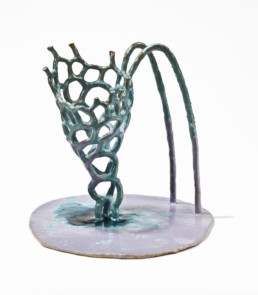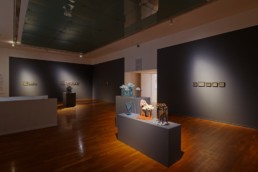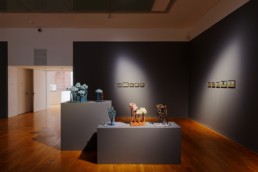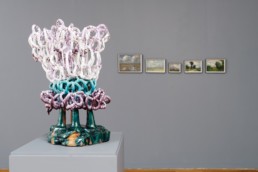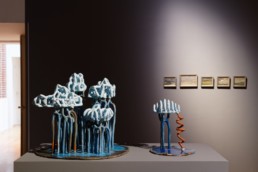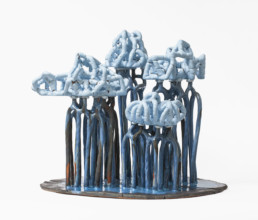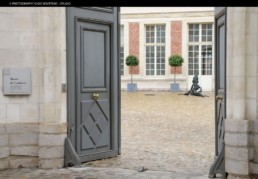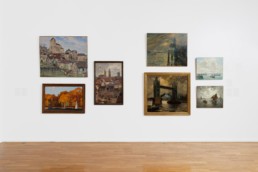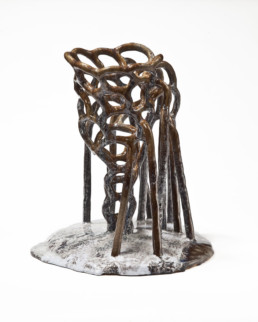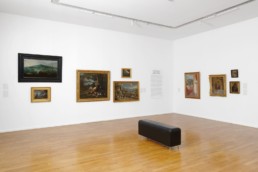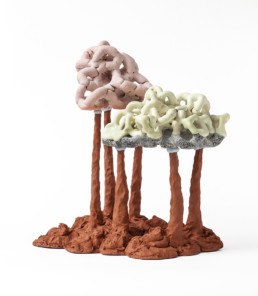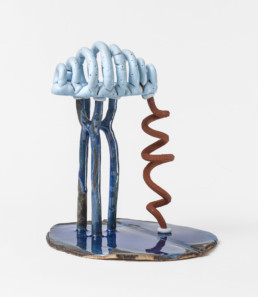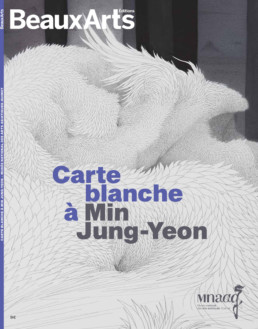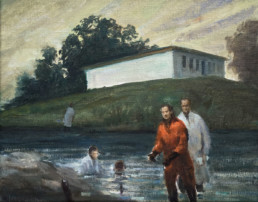Looking at clouds
Presentation
Images of fugacity and immateriality, clouds are inherent elements of a landscape. Their representation travels centuries of painting, from Antiquity to today, evolving according to scientific progress and societal changes. A mere decorative motive during Antiquity or home of the divine and the sacred in the Middle Ages, clouds are gradually seen as elements of reality starting in the Renaissance, to then become their own subject matter in the 19th century. Whereas the landscape, thus freed from symbolic codes and conventions, becomes autonomous, meteorological theories spread widely, especially among artists. Painters start conceding to clouds an important part in their compositions, alternating between a careful observation of the world and a sensitive experience for the artist, between knowledge and dream.
In collaboration with the Laboratoire d’Optique Atmosphérique de l’Université de Lille, the musée des beaux-arts de Cambrai is organizing a show dedicated to this theme with artworks from the collections, especially restored for this occasion with the support of the Societé des Amis du musée des beaux-arts. Spanning from the 17th century to the 20th century, the display is the opportunity to rediscover these works through a new public presentation.
As an extension of the show « Looking at clouds: for a history of landscape art. Selected works from the museum’s collection », a specific installation is presented upstairs, confronting the studies on the motif of painter Georges Maroniez (1865-1933) and the contemporary creations of ceramicist Bente Skjøttgaard (born in Denmark in 1961). [Excerpt from the press release of the show]
Press
Dossier de presse Carte blanche à Min Jung-Yeon
Novembre 2019Musée national des arts asiatiques - Guimet
Peter Martensen "ravage " l'entendement Libre Belgique - Arts Libre
23 Août 2017Semaine du 23 au 29 Août 2017Roger-Pierre Turine
Vous avez dit "Complot" ?Dossier Le Monde diplomatique
Juin 2015N°735Dossier illustré par Peter Martensen
Publications and texts
Carte blanche à Min Jung-Yeon
Musée Guimet
Beaux Arts Éditions
Novembre 2019
Le musée Guimet donne carte blanche à l’artiste coréenne Min Jung-Yeon. Installée dans la rotonde du musée, l’œuvre immersive Tissage, s’appuie sur la réalité tragique de cette Corée scindée en deux depuis maintenant 65 ans, ainsi que sur les théories du philosophe Lao-Tseu et du physicien quantique Carlo Rovelli. Beaux Arts Éditions se fait l’écho de cette carte blanche et revient sur cette installation qui se transforme, se mue et change au gré des déambulations des spectateurs.
Titre
Dates
Contrairement à une opinion répandue, le Lorem Ipsum n’est pas simplement du texte aléatoire. Il trouve ses racines dans une oeuvre de la littérature latine classique datant de 45 av. J.-C.,

